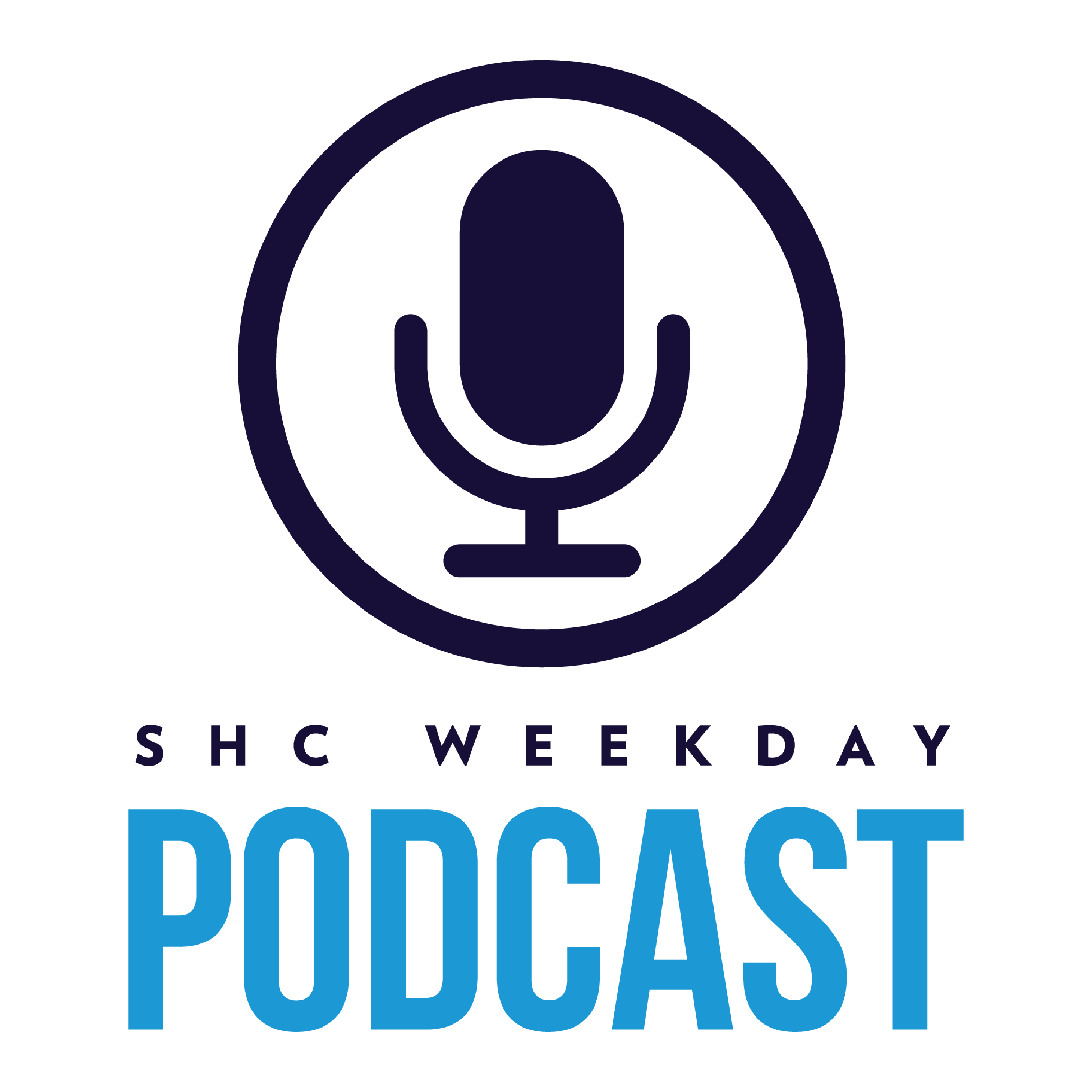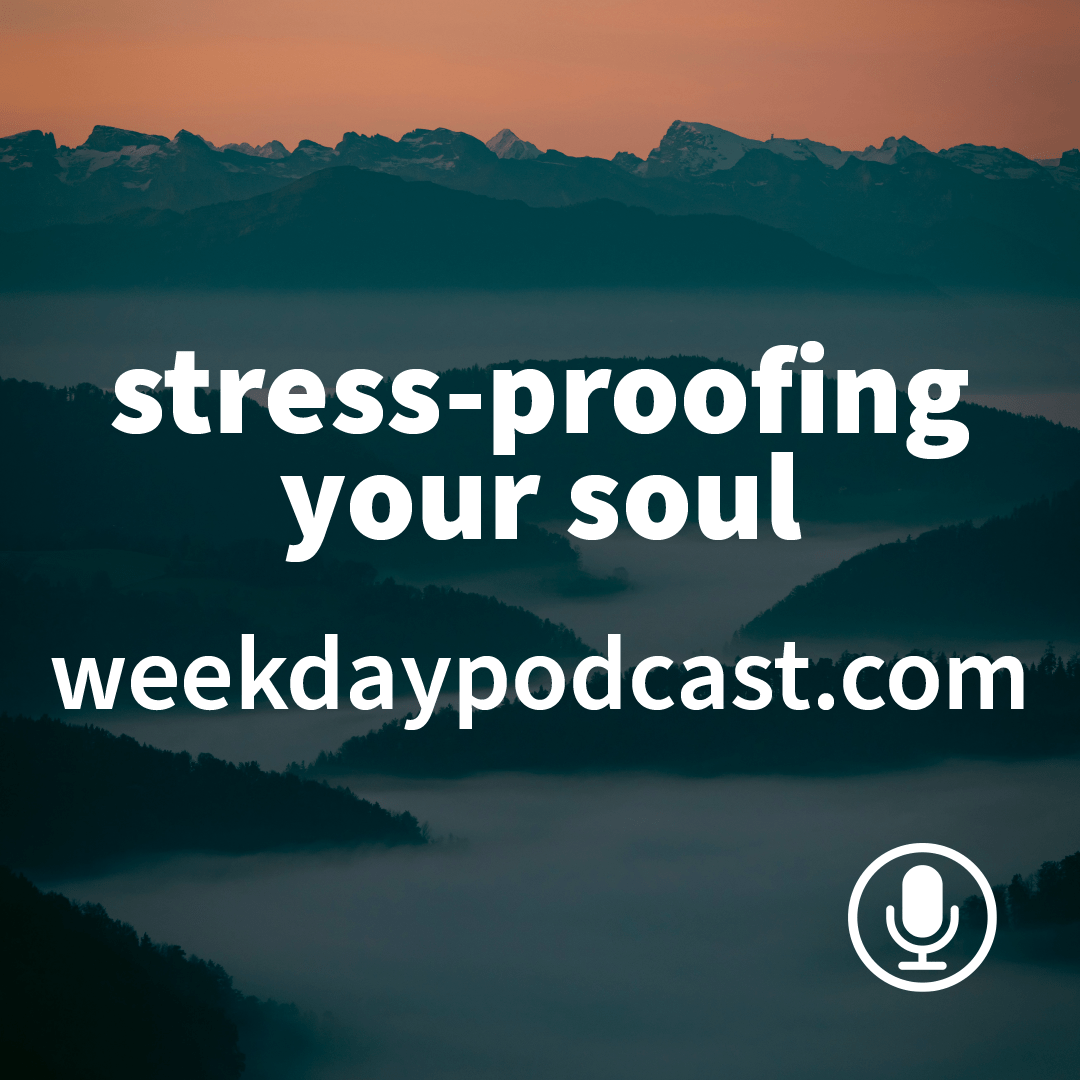[00:00:00] Foreign welcome back to another edition of the Weekday Podcast. This is Bobby. Pastor Chuck and I absolutely love getting to do these. We find it a joy to be able to spend a few minutes every single weekday with you. And our hope really is this is helpful if we can do anything for you. If there's a topic you'd like to hear about, feel free to drop us a
[email protected] we'd love to receive that. And and if you don't mind, consider sharing this with a friend. You can send them to the website weekdaypodcast.com, you can download the Sugar Hill Church app as well. There's lots of ways to access this content. We're super grateful to be on the journey with you today. I want to think about this idea that the compass isn't enough. The compass isn't enough. If you track with our church, we've been in mulligan month around here. We're leaning into this spiritual redo, this idea that you can have a second swing at things, at the things that actually matter the most. And today I, I want to talk to everybody that started the year with good intentions, but honestly feels a little off course. What do you do when you don't know where you want to go? What do you do when you have no idea of how to get where you want to go? And that's where today's idea comes in. A compass is super helpful, but without a map, you'll still feel lost. And here's what I mean by that. A compass points the way, but a map plots the path. And so if you've been around church for a while, you know, every year we launch the year with Rock Sunday, where where people take the rock home and they write on the rock the word of the year and it serves as a compass. So maybe your word was peace or discipline or joy or renewal. Those are all amazing because a word can act like a compass. It can point you in the direction it says. This is what God wants to develop in me this year. It's where he's leading me. But the downfall of a compass is a compass can only point you in a direction and doesn't necessarily show you the path.
[00:01:53] It won't warn you about potholes or construction zones or dead ends. You still need a map. A compass without a map, it's like a gym membership, but not having a workout plan. It's a good step, but it won't get you that far. So the question is, where's the map? And what I would Say is the map is an intentional life plan that supports the word that God gave you. Your word points the direction, but your decisions actually plots the map.
[00:02:19] Now, in Proverbs 16, verse 3, it says, Commit your works to the Lord and your plans will be established. So there's two parts here. Commit your works is part one. Part two is, your plans will be established. Now, that word commit in the original language of Hebrew literally means to roll like you're rolling a heavy burden onto someone else's shoulder. So the picture here is actually surrender. It's taking everything that's weighing you down. Your work, your worries, your dreams, your decisions, and rolling them over onto God.
[00:02:48] But what's interesting is it doesn't say, commit your dreams to the Lord and he'll do the rest. It says, commit your works. See, we commit our work to God and we trust him to shape the results. God wants to partner with us in forming a vision for our lives, but he also wants us to get specific, to get intentional. We get the compass from him, but we actually get to build the map together.
[00:03:12] So how do you build a map?
[00:03:14] This is what gets really practical. So if the word is a compass and God gives you the direction, you still need to chart the course. And so let me break it down today. Step number one is to clarify your destination. Ask the question, what does success look like for this word? So if your word is peace, what would a peaceful life look like by the end of the year? Is it fewer panic attacks? Is it being able to sleep without the anxiety that keeps you up until 3? Is it learning to say no to things that overstretch you?
[00:03:43] The next question is, what about this word? What about if your word is like discipline? Is it showing up to the gym three times a week? Is it building a better sleep routine? Is it sticking to a budget without panic? So you can't move forward towards your vision unless you've clarified these things? Because a vague vision leads to vague living, but a clear vision leads to meaningful steps. So step number one really is asking that question, like, where am I going? What does success look like? Step number two is to identify the terrain around you. Because every journey has obstacles. There's hills, there's valleys, there's unexpected detours. Ask the question, what is standing in my way? Maybe you've been trying to live with more patience, but every morning starts with a screaming toddler or a cluttered inbox. Or maybe your word is gratitude, but all you see lately is what's going wrong. Naming the obstacles does not mean you're being negative, it actually means you're being wise.
[00:04:36] The book of Proverbs is full of practical wisdom, like Proverbs 27, verse 12 that says the sensible see danger and they take cover, but the foolish keep going and they suffer for it. So if you don't name the terrain, you get blindsided by it. But if you anticipate it, you can plan around it. And the truth is, God never promised that the path would be easy, but he always promised to walk with us through it. Step number three is then to break it into steps. This is the hardest part for most people, turning intention into action.
[00:05:06] If your compass is pointing north towards peace, joy, discipline, or renewal, then what's your first move? Not the whole year. What's just the next step? So if your word is peace, maybe your next step is creating a quiet morning routine. If your word is health, maybe it's swapping soda for water for the three days a week. If your word is faith, maybe it's journaling one prayer a day. You don't need to finish the path today, but you do need to take the next step today.
[00:05:33] And what I would encourage you to do as you take these steps, don't forget to invite God into the planning process.
[00:05:40] The first half of Proverbs 16, verse 3 says this. Commit your works to the Lord. In other words, you're not building the map alone. In fact, when you try to make a plan without God, it becomes a burden. But when you make a plan with God, it actually becomes a blessing. And so here's how you can practically do that. This week, every morning, pray, lord, would you guide my steps today? Would you help me to follow the path you've set? When you're planning your day or week, ask, is this aligned with my word and with your will? At night, reflect, where did I follow the map today and where did I drift? What can I learn from it? The goal is not perfection. It's actually about progress in partnership with God. So don't just pray for peace, plan for peace. Don't just hope for growth, walk with God through it. And so I'll land the plane here, but I want you to imagine your word of the year sitting like a compass in your hand. You're holding the direction. That's beautiful. That's important. Now imagine God sitting next to you, unrolling a map of your life. And he asked, where do you want to go? Together you have the compass, he's offering a map. What's your response? I'd encourage you today, write down that word again.
[00:06:45] Ask the question, what does it mean to you? Clearly, specifically, practically, what is one next step that you could take this week and then pray every single day? Lord, would you establish my plans? Would you, Lord, would you lead me in your way? Because I'm telling you, a compass without a map is frustrating. But a word partnered with a plan. It leads to transformation. You don't have to wander. You're not meant to drift. God's given you a compass, and he's inviting you to walk the map step by step with him. Have a great day. We'll see you back here soon, Sam.


